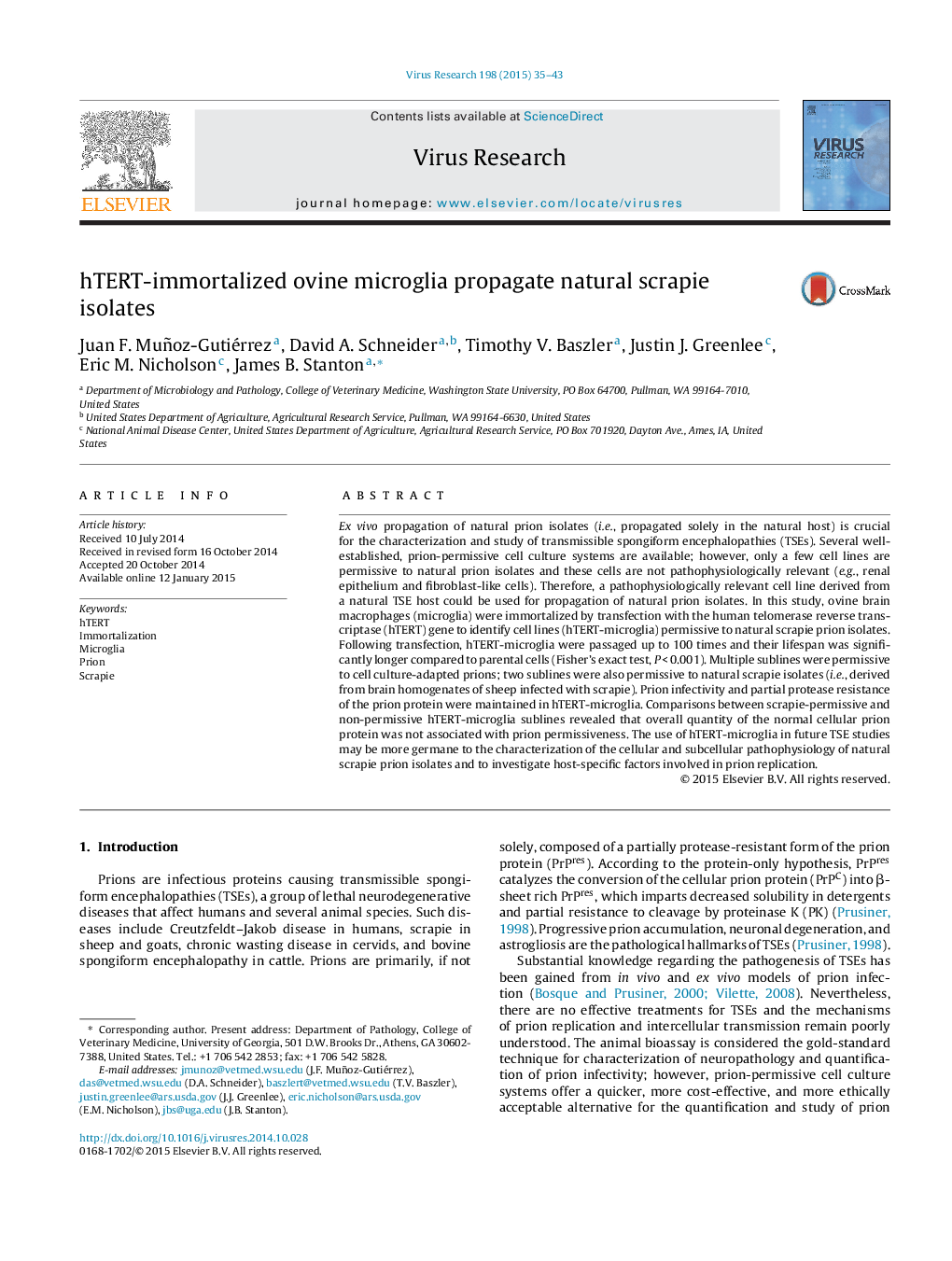| Article ID | Journal | Published Year | Pages | File Type |
|---|---|---|---|---|
| 3428325 | Virus Research | 2015 | 9 Pages |
•Ovine microglia are immortalized by telomerase (hTERT) reconstitution.•Prion permissiveness is demonstrated in four immortalized sublines.•Two sublines are permissive to natural scrapie isolates derived from sheep.•PrPC levels are insufficient to predict permissiveness to PrPSc in hTERT-microglia.
Ex vivo propagation of natural prion isolates (i.e., propagated solely in the natural host) is crucial for the characterization and study of transmissible spongiform encephalopathies (TSEs). Several well-established, prion-permissive cell culture systems are available; however, only a few cell lines are permissive to natural prion isolates and these cells are not pathophysiologically relevant (e.g., renal epithelium and fibroblast-like cells). Therefore, a pathophysiologically relevant cell line derived from a natural TSE host could be used for propagation of natural prion isolates. In this study, ovine brain macrophages (microglia) were immortalized by transfection with the human telomerase reverse transcriptase (hTERT) gene to identify cell lines (hTERT-microglia) permissive to natural scrapie prion isolates. Following transfection, hTERT-microglia were passaged up to 100 times and their lifespan was significantly longer compared to parental cells (Fisher's exact test, P < 0.001). Multiple sublines were permissive to cell culture-adapted prions; two sublines were also permissive to natural scrapie isolates (i.e., derived from brain homogenates of sheep infected with scrapie). Prion infectivity and partial protease resistance of the prion protein were maintained in hTERT-microglia. Comparisons between scrapie-permissive and non-permissive hTERT-microglia sublines revealed that overall quantity of the normal cellular prion protein was not associated with prion permissiveness. The use of hTERT-microglia in future TSE studies may be more germane to the characterization of the cellular and subcellular pathophysiology of natural scrapie prion isolates and to investigate host-specific factors involved in prion replication.
